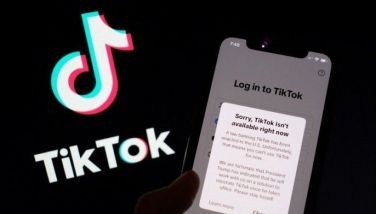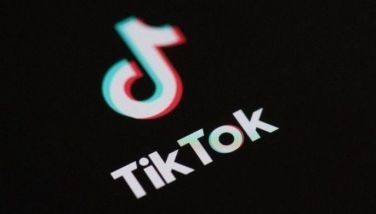Software giants battle over SMEs
May 23, 2005 | 12:00am
We believe that our SME business in the Asia-Pacific will go up to the range of 10 to 15 percent of total revenue by 2006 – Krishnendu Datta, SAP Philippines country manager
We are more profitable than the next 20 software vendors combined and we have 2,000 plus E-Business Suite customers – Yashi Kant, Oracle Philippines managing director
Microsoft Business Solutions meets all of these criteria and offers better business value as compared to other solutions – Microsoft Philippines general manager TJ Javier
If you’re a small- or medium-sized company, Microsoft, Oracle and SAP want you.
The saying that there is strength in numbers rings true, now that the world’s biggest software companies are fighting to win business from 800,000 small and medium enterprises (SMEs) in the Philippines.
In successive events this month, Microsoft, Oracle and SAP discussed what they can offer local SMEs by way of business applications and services that used to be available only to large companies.
SAP, a well-entrenched provider of enterprise systems for big organizations, will launch in July its latest SME solution, the SAP Business One.
Database monolith Oracle has just released its flagship Oracle E-Business Suite 11i.10 for the enterprise market while tooting its strength in business applications for the mid-market, especially after wolfing down PeopleSoft last December.
Microsoft Business Solutions (MBS), a wholly owned subsidiary of Microsoft Corp., also sees a growing customer base among small and mid-sized companies. The company has 261,000 customers in this category worldwide, close to 400 of which are in the Philippines.
Probably not all products are created equal, but the statements of these three vendors about their respective products are all similar in the way they pepper them with words such as integrated, affordable and fast. Here’s some proof:
According to SAP, "SAP Business One is an integrated, affordable, business management solution built from the ground up to meet the immediate and long-term needs of SMEs. It provides a true and unified view of operations across customer relationship management, manufacturing, and finance."
Oracle E-Business Suite Special Edition, the "Mini-Me" of the enterprise version Oracle E-Business Suite, is also all about being affordable, integrated and fast. Oracle claims "more functionality-rich industry solutions, continued expansion of horizontal offerings, integrated performance management and low cost of integration and deployment."
If the fruit doesn’t fall far from the tree, this statement should apply to Oracle’s special SME edition as well.
Oracle also claims the E-Business Suite Special Edition can be executed on low-cost servers running open-source software within 10 to 40 days. Not to be outdone, SAP says the SAP Business One can be implemented in as short as eight weeks.
Microsoft Business Solutions, which carries brands Great Plains and Navision, among other software, also passionately talks about integration, affordability and fast implementation of its software tools. A product release from the company states that MBS offers "integrated applications and services to SMEs and divisions of large enterprises...The financial management, Customer Relationship Management (CRM), Supply Chain Management (SCM) and analytics applications work with Microsoft products such as Office and Windows to streamline processes across an entire organization, giving businesses insight to respond rapidly, plan strategically and execute quickly."
Not that it’s wrong to have a high level of integration of applications, especially when done quickly and inexpensively. In fact, according to TJ Javier, general manager of Microsoft Philippines, these are among the key factors the SME market requires.
"Companies evaluate business applications based on five key criteria – software that is functionally rich, highly adaptable to changing business needs, meets their specific industry needs, is affordable, and easy to learn and use," says Javier.
Then he delivered the clincher: "MBS meets all of these criteria and offers better business value as compared to other solutions."
The customers are kings, but who do they favor?
Microsoft officials say their business solution unit grew their customer base in the Philippines by more than 50 percent in 2004, ending the year with close to 400 customers. They also claim to have the largest customer base in Tier 1 ERP (enterprise resource planning) applications in the country.
Furthermore, Microsoft says MBS is experiencing global growth of 17 percent year-on-year in an industry segment that is growing only between four and six percent. It also boasts of a mid-market customer base of 261,000 around the world, dwarfing the figures quoted by SAP and Oracle.
Oracle and SAP, however, still have a lot of fight between them.
Krishnendu Datta, country manager of SAP Philippines, says his company is "showing great momentum in the SME market, with over 19,600 customers worldwide, more than half of them SMEs."
"We believe that our SME business in the Asia-Pacific will go up to the range of 10 to 15 percent of total revenue by 2006," Datta adds.
But not if Oracle can help it.
"We have the headstart in the mid-market. SAP is late in the game, while Microsoft got several confusing products," says Yashi Kant, managing director of Oracle Philippines.
Admitting that Oracle was "once the dormant giant in the Asia-Pacific," Kant, however, says it is changing now that they also have the products and customers of PeopleSoft and a total of 8,000 people working on application development.
"With the merger completed in December, Oracle is now the No. 1 enterprise software company in the world, No. 1 in SCM, the No. 2 enterprise application company in the Asia-Pacific, and the No. 1 enterprise application company in North America... We are more profitable than the next 20 software vendors combined and we have 2,000 plus E-Business Suite customers," Kant says.
With PeopleSoft, Oracle’s combined application customer base ballooned to over 23,000, about 3,500 of which are in the region, notes Kant.
"We believe that with 11i.10, we will pass SAP soon (in the region). We are ahead in under-penetrated markets... There are industries that will grow where Oracle already is... The gap is very narrow with SAP," adds Kant.
Some of the functions SAP Business One provides are sales force automation, financial management, management control and reporting and information management. They are designed to give SMEs an immediate and complete view of their business operations and customer activities for better decision-making.
One of Business One’s early adopters is Splash Corp., which will use the solution for its dealer management system. South Star Drug has also implemented Business One and is set to go live this month. Other companies which are also in the process of installing Business One are the Gen. Santos Medical Doctors Hospital and San Andres Fishing.
Microsoft, on the other hand, released Navision 4.0, the first major upgrade to this enterprise application suite created for SMEs. Navision 4.0 integrates critical financial, manufacturing, distribution, customer management, supply chain, analytics and e-commerce data into one streamlined solution.
"We are delivering on our product roadmap as promised, and in the past 90 days, have launched the latest releases of the flagship Navision and Great Plains solutions. We are also continuing to innovate in Axapta and Microsoft CRM with new releases planned during the next 12 months," says Tep Misa, director for small and mid-market segment and partners of Microsoft Philippines.
MBS customers in the country include JS Unitrade Merchandising Inc., a nationwide distributor of personal care products, Ortigas & Co., University of Sto. Tomas, and LiquiGas Philippines Corp.
On Oracle’s side, the launch of Oracle E-Business Suite 11i.10 has been described as the company’s strongest release ever. The enhanced and most complete E-Business Suite covers business applications for the automation of critical back-end and front-end business functions, in particular ERP, SCM and CRM.
Oracle E-Business Suite 11i.10 particularly expanded the capabilities of Oracle Daily Business Intelligence to deliver 82 percent more reports, 53 percent more key measurements, as well as 13 percent more role-specific dashboards. This means users will have access to more useful information from the business system, says Kant.
Oracle E-Business Suite 11i.10 are particularly targeted at aerospace and defense, automotive, chemicals, communications, consumer products, energy, healthcare, high technology, industrial manufacturing, life sciences, public sector, retail, travel and transportation and utilities.
Among Oracle’s local E-Business Suite customers are Davao Light and Power Co., Jollibee Foods and Aboitiz Transport. Early users of the Oracle E-Business Suite Special Edition in the country are M&H Food Corp., owner of the Hen Lin fastfood chain; Max Restaurant and music store Odyssey.
We are more profitable than the next 20 software vendors combined and we have 2,000 plus E-Business Suite customers – Yashi Kant, Oracle Philippines managing director
Microsoft Business Solutions meets all of these criteria and offers better business value as compared to other solutions – Microsoft Philippines general manager TJ Javier
If you’re a small- or medium-sized company, Microsoft, Oracle and SAP want you.
The saying that there is strength in numbers rings true, now that the world’s biggest software companies are fighting to win business from 800,000 small and medium enterprises (SMEs) in the Philippines.
In successive events this month, Microsoft, Oracle and SAP discussed what they can offer local SMEs by way of business applications and services that used to be available only to large companies.
SAP, a well-entrenched provider of enterprise systems for big organizations, will launch in July its latest SME solution, the SAP Business One.
Database monolith Oracle has just released its flagship Oracle E-Business Suite 11i.10 for the enterprise market while tooting its strength in business applications for the mid-market, especially after wolfing down PeopleSoft last December.
Microsoft Business Solutions (MBS), a wholly owned subsidiary of Microsoft Corp., also sees a growing customer base among small and mid-sized companies. The company has 261,000 customers in this category worldwide, close to 400 of which are in the Philippines.
According to SAP, "SAP Business One is an integrated, affordable, business management solution built from the ground up to meet the immediate and long-term needs of SMEs. It provides a true and unified view of operations across customer relationship management, manufacturing, and finance."
Oracle E-Business Suite Special Edition, the "Mini-Me" of the enterprise version Oracle E-Business Suite, is also all about being affordable, integrated and fast. Oracle claims "more functionality-rich industry solutions, continued expansion of horizontal offerings, integrated performance management and low cost of integration and deployment."
If the fruit doesn’t fall far from the tree, this statement should apply to Oracle’s special SME edition as well.
Oracle also claims the E-Business Suite Special Edition can be executed on low-cost servers running open-source software within 10 to 40 days. Not to be outdone, SAP says the SAP Business One can be implemented in as short as eight weeks.
Microsoft Business Solutions, which carries brands Great Plains and Navision, among other software, also passionately talks about integration, affordability and fast implementation of its software tools. A product release from the company states that MBS offers "integrated applications and services to SMEs and divisions of large enterprises...The financial management, Customer Relationship Management (CRM), Supply Chain Management (SCM) and analytics applications work with Microsoft products such as Office and Windows to streamline processes across an entire organization, giving businesses insight to respond rapidly, plan strategically and execute quickly."
Not that it’s wrong to have a high level of integration of applications, especially when done quickly and inexpensively. In fact, according to TJ Javier, general manager of Microsoft Philippines, these are among the key factors the SME market requires.
"Companies evaluate business applications based on five key criteria – software that is functionally rich, highly adaptable to changing business needs, meets their specific industry needs, is affordable, and easy to learn and use," says Javier.
Then he delivered the clincher: "MBS meets all of these criteria and offers better business value as compared to other solutions."
Microsoft officials say their business solution unit grew their customer base in the Philippines by more than 50 percent in 2004, ending the year with close to 400 customers. They also claim to have the largest customer base in Tier 1 ERP (enterprise resource planning) applications in the country.
Furthermore, Microsoft says MBS is experiencing global growth of 17 percent year-on-year in an industry segment that is growing only between four and six percent. It also boasts of a mid-market customer base of 261,000 around the world, dwarfing the figures quoted by SAP and Oracle.
Oracle and SAP, however, still have a lot of fight between them.
Krishnendu Datta, country manager of SAP Philippines, says his company is "showing great momentum in the SME market, with over 19,600 customers worldwide, more than half of them SMEs."
"We believe that our SME business in the Asia-Pacific will go up to the range of 10 to 15 percent of total revenue by 2006," Datta adds.
But not if Oracle can help it.
"We have the headstart in the mid-market. SAP is late in the game, while Microsoft got several confusing products," says Yashi Kant, managing director of Oracle Philippines.
Admitting that Oracle was "once the dormant giant in the Asia-Pacific," Kant, however, says it is changing now that they also have the products and customers of PeopleSoft and a total of 8,000 people working on application development.
"With the merger completed in December, Oracle is now the No. 1 enterprise software company in the world, No. 1 in SCM, the No. 2 enterprise application company in the Asia-Pacific, and the No. 1 enterprise application company in North America... We are more profitable than the next 20 software vendors combined and we have 2,000 plus E-Business Suite customers," Kant says.
With PeopleSoft, Oracle’s combined application customer base ballooned to over 23,000, about 3,500 of which are in the region, notes Kant.
"We believe that with 11i.10, we will pass SAP soon (in the region). We are ahead in under-penetrated markets... There are industries that will grow where Oracle already is... The gap is very narrow with SAP," adds Kant.
One of Business One’s early adopters is Splash Corp., which will use the solution for its dealer management system. South Star Drug has also implemented Business One and is set to go live this month. Other companies which are also in the process of installing Business One are the Gen. Santos Medical Doctors Hospital and San Andres Fishing.
Microsoft, on the other hand, released Navision 4.0, the first major upgrade to this enterprise application suite created for SMEs. Navision 4.0 integrates critical financial, manufacturing, distribution, customer management, supply chain, analytics and e-commerce data into one streamlined solution.
"We are delivering on our product roadmap as promised, and in the past 90 days, have launched the latest releases of the flagship Navision and Great Plains solutions. We are also continuing to innovate in Axapta and Microsoft CRM with new releases planned during the next 12 months," says Tep Misa, director for small and mid-market segment and partners of Microsoft Philippines.
MBS customers in the country include JS Unitrade Merchandising Inc., a nationwide distributor of personal care products, Ortigas & Co., University of Sto. Tomas, and LiquiGas Philippines Corp.
On Oracle’s side, the launch of Oracle E-Business Suite 11i.10 has been described as the company’s strongest release ever. The enhanced and most complete E-Business Suite covers business applications for the automation of critical back-end and front-end business functions, in particular ERP, SCM and CRM.
Oracle E-Business Suite 11i.10 particularly expanded the capabilities of Oracle Daily Business Intelligence to deliver 82 percent more reports, 53 percent more key measurements, as well as 13 percent more role-specific dashboards. This means users will have access to more useful information from the business system, says Kant.
Oracle E-Business Suite 11i.10 are particularly targeted at aerospace and defense, automotive, chemicals, communications, consumer products, energy, healthcare, high technology, industrial manufacturing, life sciences, public sector, retail, travel and transportation and utilities.
Among Oracle’s local E-Business Suite customers are Davao Light and Power Co., Jollibee Foods and Aboitiz Transport. Early users of the Oracle E-Business Suite Special Edition in the country are M&H Food Corp., owner of the Hen Lin fastfood chain; Max Restaurant and music store Odyssey.
BrandSpace Articles
<
>
- Latest
Latest
Latest
January 19, 2025 - 12:39pm
By Alex Pigman | January 19, 2025 - 12:39pm
January 19, 2025 - 10:05am
By Alex Pigman | January 19, 2025 - 10:05am
January 6, 2025 - 11:05pm
January 6, 2025 - 11:05pm
December 1, 2024 - 3:59pm
December 1, 2024 - 3:59pm
Recommended






























